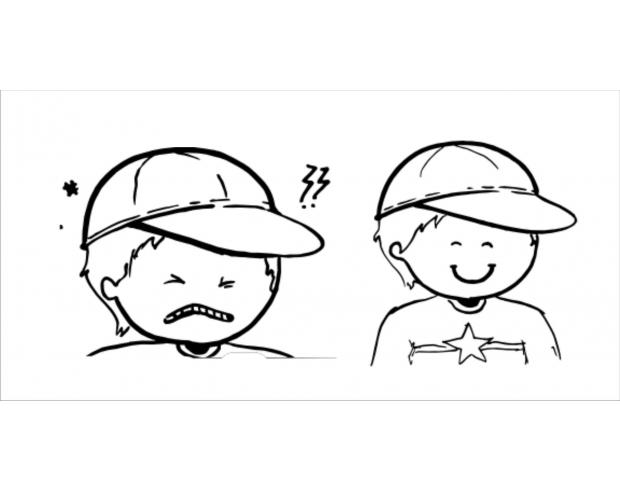As Muslims, we are all aware of the status of anger in Islam. Allah Ta’ala tells us in the Qur’an: “Those who spend (freely), whether in prosperity, or in adversity; who restrain anger, and pardon (all) men;- for Allah loves those who do good.”(Al-Qur’an3:134) The Prophet Mohammed (saw) narrated: ”The man is not a good wrestler; the strong man is in fact the person who controls himself at the time of anger.” (Bukhari) The Prophet Mohammed (saw) also said : Who ever controls his temper Allah will take away punishment from him and who so ever safe guard’s his tongue Allah will conceal his sins. (Tabraani) Living in this millennium of fast life, and fast food and instant gratification, we have driven our emotions at fast pace too. Anger seems to be playing havoc in our lives. We, as parents, find ourselves easily loosing our hold and grip over the essential virtues of patience, love, respect and tolerance which are the cornerstones of well mannered behaviour. We fail to realize the impact of our own short-tempered self upon our children. More often than not, we simply remain incapable of adhering to the essential principles of positive role modeling. Psychologist are observing an increasing rate of tantrums and anger issues amongst children. It has been reported that children who come from families where adults (especially parents) demonstrate open spells of anger, exhibit one or more of the following: ◾More aggressive ◾Lack of problem solving skills ◾Lack the ability of logically analyzing situations ◾In ability to establish stable relationships ◾Falling victim to peer pressure ◾Increased risk of indulging in drugs We suffer physically, not able to problem solve and lack patience, feel people avoiding us, and life becomes totally mess. Strategies for Anger management Lets look at some of the practical steps that can be taken for managing anger. I would like to emphasize here that the best techniques are one given to us by our dear Prophet (saw). We not only need to consistently apply them in our own lives but also teach them to our kids through positive role modelling. 1.Recitation of Dua:“I seek refuge with Allah from Satan, the accursed.” (A`oodhu billahi mina ash-shaytaani ar-rajeem) ◾This helps us relax. Practice this in front of kids, when they are not ready to do their homework, or they are making their room messy or throwing any tantrums and you plan to fix them. While you handle the situation, the kids should see you reciting the duas. 2.Changing Your position: Prophet Mohammed (saw) said, “When one of you becomes angry while standing he should sit down. If the anger leaves him, well and good; otherwise he should lie down.” (Tirmidhi) ◾Change of posture basically helps us redirect our energy and attention to other possibilities. This also helps us to modify the way we think. 3.Making Wudhu: Prophet Mohammed (saw) said: Anger comes from the devil, the devil was created of fire, and fire is extinguished only with water; so when one of you becomes angry, he should perform ablution. (Abu Dawood) 4.Learn, teach and apply problem solving skills: We need to identify the triggers leading to anger, and find the best possible solution for them. Visualize in your mind and repeat the situation so when it ultimately happens, you would be able to handle it. Few quick tips ◾Develop good communication skills ◾Defuse some situations via humor, till you find a better option for staying calm ◾Healthy life style helps too. ◾Stay very calm while interacting with kids. ◾Encourage expression of emotions in a healthy way. ◾Tell your children stories from lives of Prophet (saw) and Sahabah (RA) and how they managed their anger. Activity for kids: Show these two pictures to kids. Have them color it as well. Also, discuss angery vs pleasant attitude as a comparison and help them draw similar images and put up in their room as a reminder about how they want to look. They can also be give golden stars as a reward for keeping a happy face, when they controlled their anger and black stars on an angry face. Also, discuss with kids, how will they try to resolve the issue better the next time. The Author of this article is Director, HamarayBachchay (Children’s Department), Alhuda International Islamabad.
2014-04-18 10:58:30
As Muslims,
sign in to comment
Be the first to comment





